In the ever-evolving world of HVAC (Heating, Ventilation, and Air Conditioning), maintaining high standards is essential for ensuring optimal performance and safety. As HVAC technicians, we understand that adhering to technical standards is not just a matter of compliance but also a commitment to quality and customer satisfaction. Whether you’re installing a new system or servicing an existing one, following the right protocols is crucial. At MDL Solutions, we prioritize adherence to HVAC standards, ensuring that our clients receive the best possible service. Our expertise as HVAC technicians means we are well-versed in the latest guidelines and regulations, allowing us to deliver top-notch services consistently.
The Importance of HVAC Standards
HVAC standards provide a comprehensive framework for designing, installing, and maintaining heating, ventilation, and air conditioning systems. These standards ensure that systems operate efficiently, safely, and sustainably. For HVAC technicians, understanding and implementing these standards is fundamental to delivering quality service. By following these guidelines, HVAC technicians can minimize errors, reduce energy consumption, and extend the lifespan of equipment. Standards such as those from the American Society of Heating, Refrigerating, and Air-Conditioning Engineers (ASHRAE) and the Environmental Protection Agency (EPA) are indispensable tools in the HVAC industry. As HVAC technicians, our role involves continuous learning and adherence to these standards to ensure that our clients benefit from efficient and safe HVAC systems.
Key Standards and Guidelines
- ASHRAE Standards: The American Society of Heating, Refrigerating, and Air-Conditioning Engineers (ASHRAE) sets critical standards for HVAC systems. ASHRAE Standard 62.1, for instance, specifies the minimum ventilation rates and indoor air quality levels necessary for various buildings. For HVAC technicians, these standards are the cornerstone of creating and maintaining healthy indoor environments. Learn more about ASHRAE Standards. Adhering to ASHRAE standards ensures that HVAC systems are designed to provide optimal comfort and air quality, which is essential for the well-being of building occupants.
- ACCA Manuals: The Air Conditioning Contractors of America (ACCA) provides detailed manuals, such as Manual J (Residential Load Calculation), Manual D (Residential Duct Design), and Manual S (Residential Equipment Selection). These manuals are indispensable for HVAC technicians aiming for precise and effective system designs. Explore ACCA Manuals. By following ACCA guidelines, HVAC technicians can ensure that each system is tailored to the specific needs of a building, leading to better performance and efficiency. These manuals provide step-by-step instructions and calculations that help HVAC technicians design systems that meet the unique requirements of each project.
- EPA Regulations: The Environmental Protection Agency (EPA) enforces regulations related to refrigerants and emissions, ensuring that HVAC systems comply with environmental standards. Proper handling and disposal of refrigerants are crucial to prevent environmental harm and legal penalties. For HVAC technicians, staying informed about EPA regulations is vital to maintaining compliance and protecting the environment. Review EPA Regulations. By adhering to these regulations, HVAC technicians can contribute to environmental sustainability and ensure that their practices do not harm the ecosystem.
Benefits of Compliance
- Enhanced Efficiency: Adhering to HVAC standards ensures that systems are designed and installed for maximum efficiency, reducing energy costs and environmental impact. For HVAC technicians, this means implementing best practices that enhance the performance of HVAC systems, leading to significant savings for clients.
- Safety Assurance: Compliance with safety standards minimizes the risk of accidents and ensures the well-being of occupants. HVAC technicians play a crucial role in maintaining safety standards, ensuring that installations and repairs are conducted in a safe and reliable manner.
- Customer Satisfaction: Quality installations and maintenance build trust with customers, leading to repeat business and positive referrals. As HVAC technicians, providing excellent service and adhering to standards ensure that clients are satisfied with the results, which fosters long-term relationships and business growth.
- Longevity of Equipment: Proper adherence to technical standards can significantly extend the lifespan of HVAC equipment, offering long-term cost savings for clients. HVAC technicians who follow these standards can provide maintenance and repair services that keep systems running smoothly for years, reducing the need for frequent replacements and major repairs.
The Role of HVAC Technicians
As HVAC technicians, our role is pivotal in implementing these standards. From initial system design to routine maintenance, every step must align with the latest guidelines and best practices. Continuous education and training are essential to stay updated with industry advancements and regulatory changes. At MDL Solutions, we pride ourselves on our commitment to excellence and adherence to all technical standards. Our team of skilled HVAC technicians is dedicated to delivering top-notch services that ensure your systems are efficient, safe, and compliant. We understand the importance of staying current with industry trends and regulations, which is why we invest in ongoing training and certification for our technicians.
For reliable HVAC services that prioritize quality and compliance, contact MDL Solutions today. Let us help you achieve optimal performance and peace of mind with your HVAC systems.

